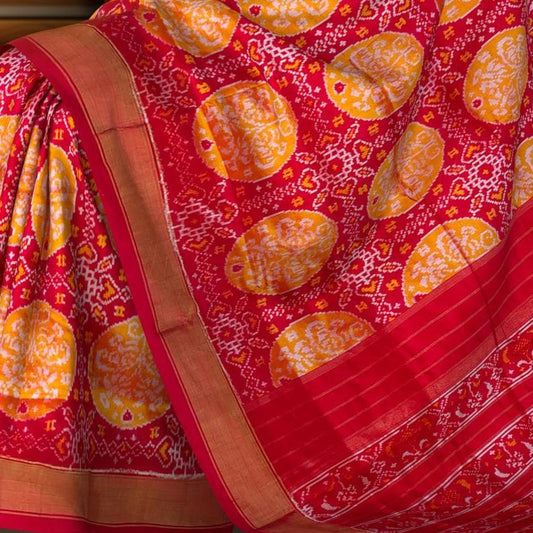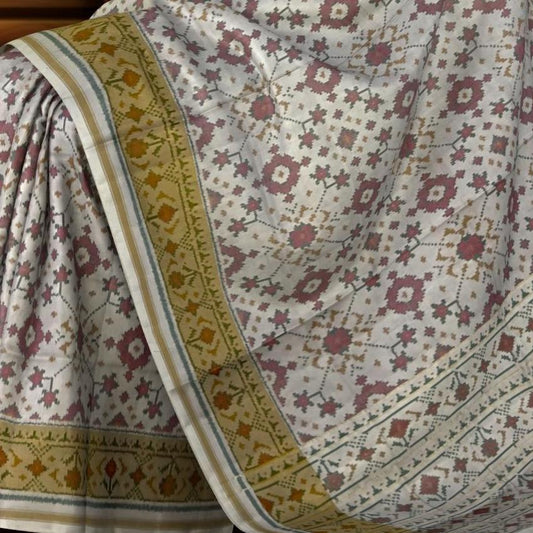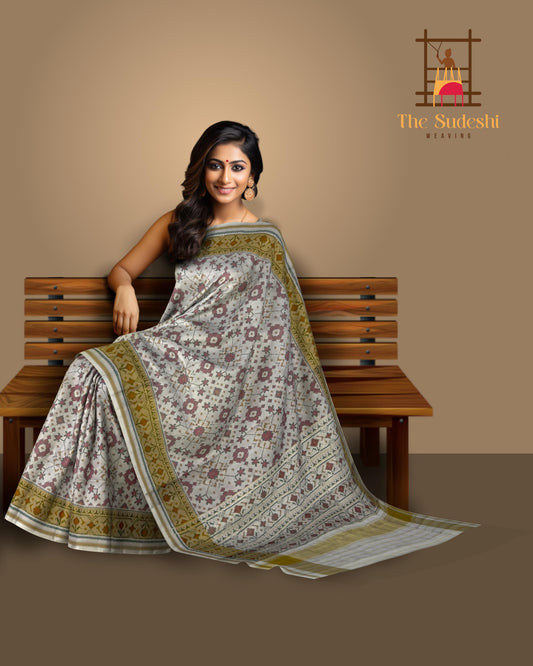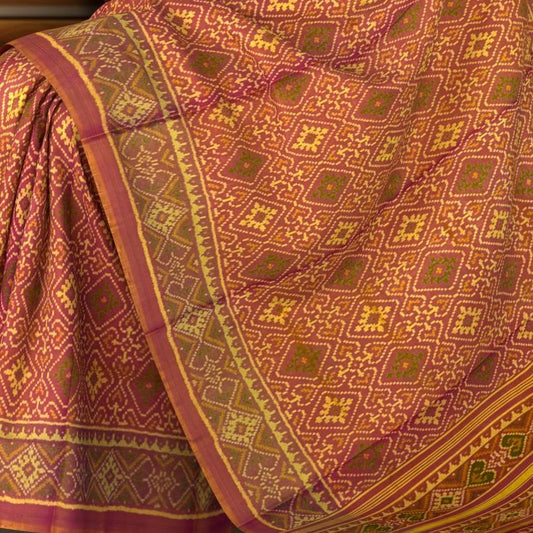Revealing Authenticity: How to Identify a Genuine Handloom Kanjeevaram Silk Saree

Elegance, tradition, and craftsmanship are woven into the threads of a Handloom Kanjeevaram Silk Saree. Originating from the culturally rich town of Kanchipuram in Tamil Nadu, India, these sarees have a legendary status in the world of Indian textiles.
However, with the popularity of this exquisite attire, counterfeit versions have emerged on the market. In this guide, we will delve into the art of authenticating a Handloom Kanjeevaram Silk Saree, ensuring you invest in the real treasure.
1.Check the Silk Texture and Shine
Genuine Kanjeevaram sarees are known for their luxurious silk texture and distinct natural shine. Run your fingers along the fabric to feel its smoothness. The silk used in authentic sarees is sourced from silkworms, giving it a rich, glossy appearance. Artificial materials lack this organic luster and can feel rough to the touch.
2. Examine the Zari Work
The intricate zari work on a Kanjeevaram saree is a hallmark of its authenticity. Traditional Kanjeevaram sarees feature zari made of gold or silver, often woven with intricate designs of peacocks, temples, checks, and floral motifs. Counterfeit sarees may use synthetic zari that doesn't possess the same luster as genuine metal threads. Hold the saree against the light to see if the zari reflects a genuine metallic shine.
3. Inspect the Border and Pallu
The border and pallu of a Kanjeevaram saree carry significant design elements. The border, known as the "zari border," is usually wider and features detailed patterns. The pallu, or the end piece, is where the magnificence of the saree is often displayed. Authentic Kanjeevaram sarees have intricate designs that are skillfully woven and stand out vividly against the body of the saree.
4. Feel the Weight:
Genuine Handloom Kanjeevaram Silk Sarees are known for their substantial weight due to their high-quality silk and zari work. This weight is a testament to the richness of the fabric and the craftsmanship involved. Lightweight sarees may indicate the use of inferior materials.
5. Inspect the Selvedge

The selvedge, or the finished edge of the saree, provides valuable information about its authenticity. Authentic Kanjeevaram sarees usually have a distinctive zig-zag pattern in contrasting colors on the selvedge, a result of the interlocking weft and warp threads. This intricate detailing is hard to replicate in counterfeit versions.
6. Look for Silk Mark Certification
The Indian government's Silk Mark initiative aims to certify the authenticity of silk products. Look for the Silk Mark label or hologram on the saree's tag or packaging. This certification assures you that the saree is made from genuine silk and adheres to quality standards.
7. Purchase from Reputable Sellers
To ensure the authenticity of your Handloom Kanjeevaram Silk Saree, buy from well-established and reputable sellers. Reputed stores often provide certificates of authenticity and can offer information about the saree's origin and craftsmanship.
Conclusion
A Handloom Kanjeevaram Silk Saree is not just an outfit; it's a work of art that reflects the rich heritage of India. By paying attention to the silk texture, zari work, design elements, weight, selvedge, and certification, you can authenticate the genuineness of your prized possession.
Remember, every genuine Kanjeevaram saree carries the legacy of skilled weavers and the essence of tradition, making it an investment worth cherishing.







Leave a comment
Please note, comments need to be approved before they are published.